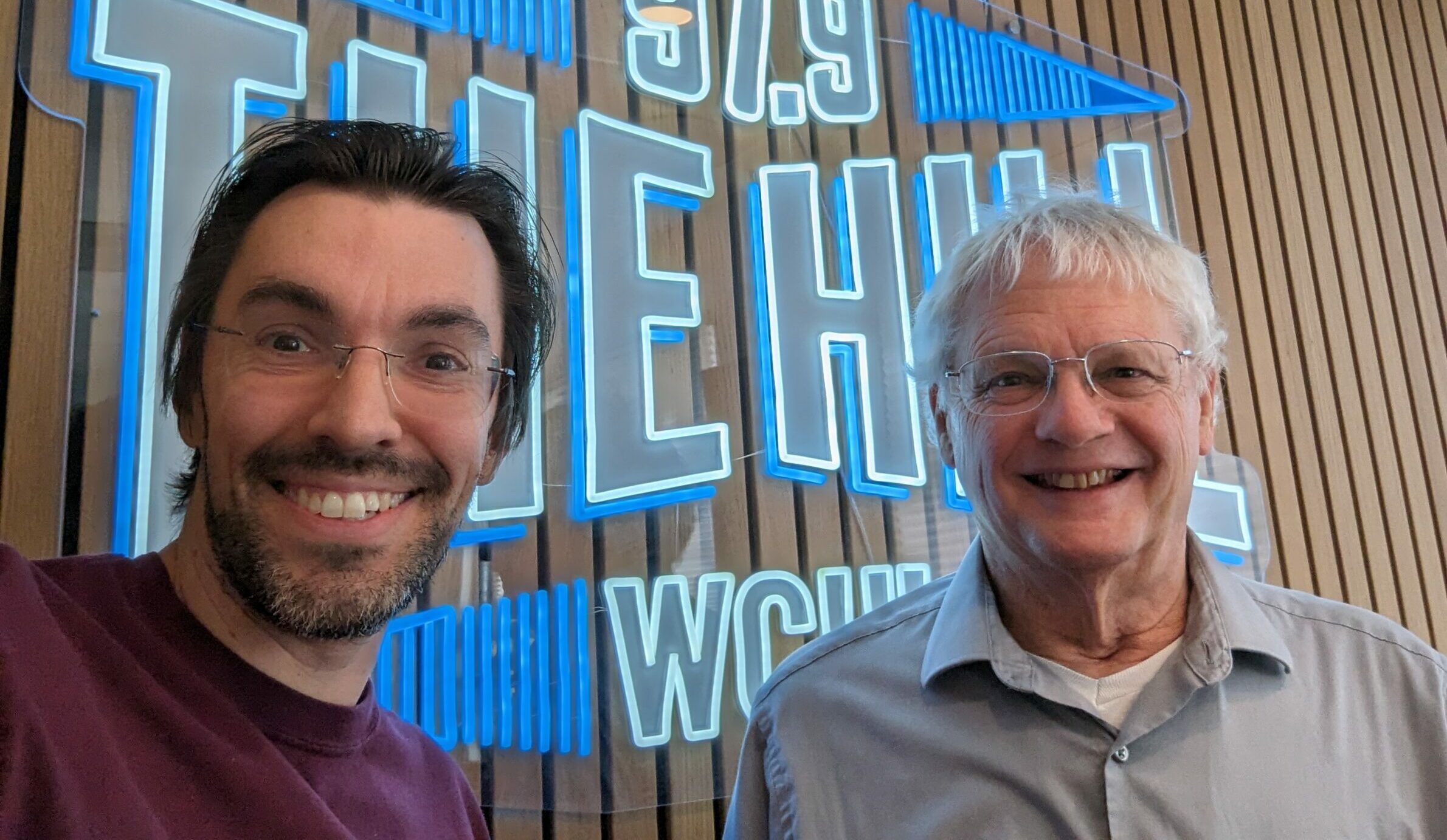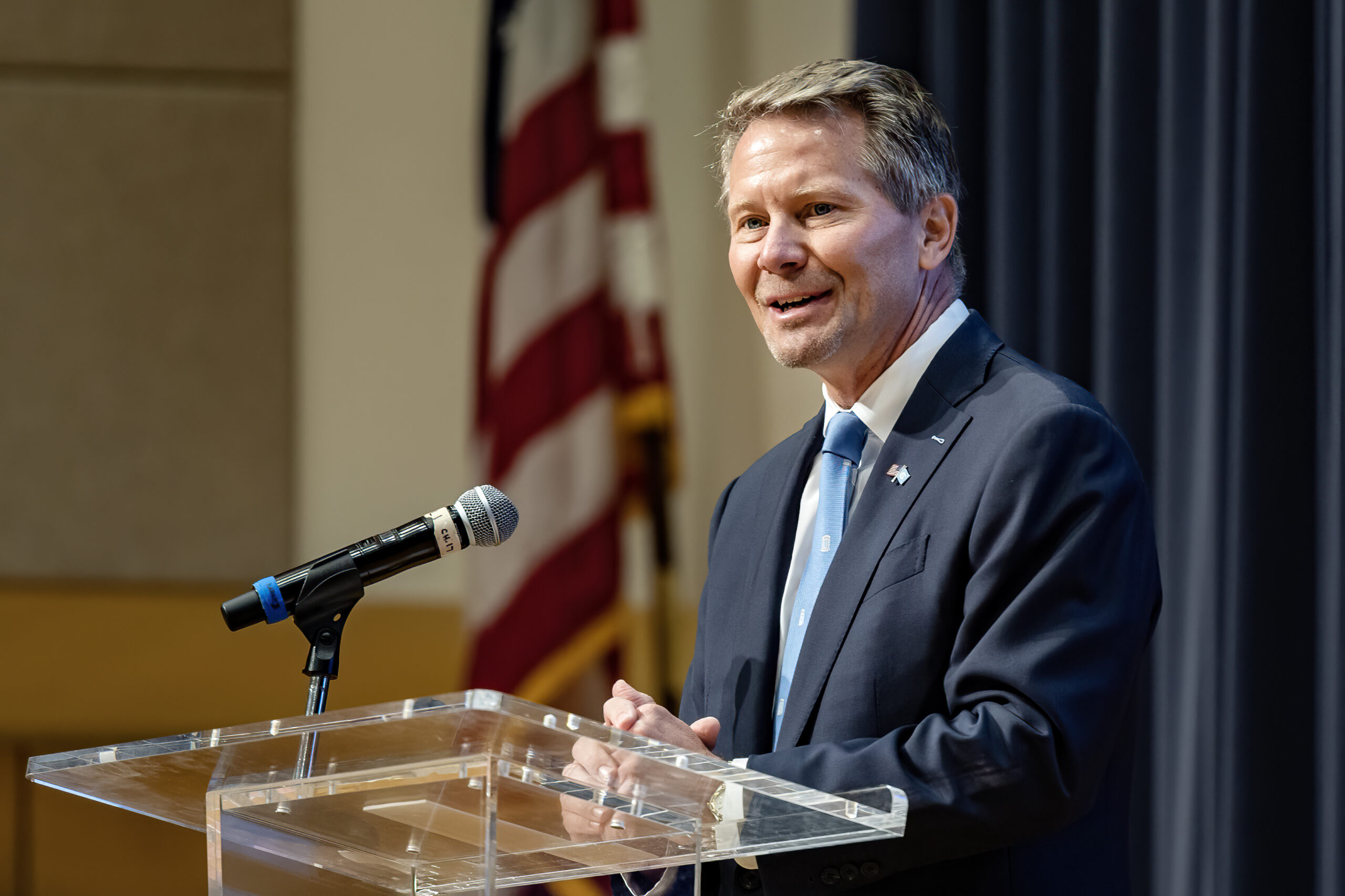We think and talk a lot about the idea of the American Dream, an idea that has existed and persisted in our culture for decades. But how often have we considered the ways in which that idea has changed over the years? And where might it be going in the future?
Saturday, November 9, Carolina Public Humanities is presenting a seminar on “The Past, Present, and Future of the American Entrepreneur,” from 9:00 a.m. to 12:30 p.m. at UNC’s Kenan Conference Center.
Click here to get more information and purchase tickets.
The seminar will bring together two UNC professors, who will tackle the same subject from different perspectives in time.
Approaching entrepreneurship from the past will be historian Benjamin Waterhouse, whose latest book is “One Day I’ll Work for Myself: The Dream and Delusion that Conquered America.” His talk, an outgrowth of the book, will be on “How Working For Yourself Became the New American Dream.”
Approaching entrepreneurship from the future will be economist Bernard Bell, executive director of UNC’s Shuford Program in Entrepreneurship. He’ll be looking ahead to where entrepreneurship may be headed in the coming years, with a talk entitled “What Will Entrepreneurs Need to Thrive in the 21st Century?”
97.9 The Hill’s Aaron Keck recently welcomed Bell and Waterhouse to the studio, for the latest round of a monthly feature called “Oh, the Humanities!” that focuses on humanities research, scholarship, and events on UNC’s campus.
Click here to listen to the full conversation. The transcript below has been edited for clarity.
Aaron Keck: What’s the event going to entail? Who’s the target audience?
Benjamin Waterhouse: It’ll feature talks by Bernard and myself, and then a sort of roundtable discussion on common themes. We come at the issue of entrepreneurship from different disciplines, different professional and maybe even ideological perspectives – but we have a lot to say in common, to connect the past, the present and the future. And the target audience is (anyone) in the general community who might want take a closer look at what entrepreneurship means, what it has meant, and what it can mean.
Bernard Bell: Yes – taking the onion and peeling it back, trying to determine how to scale opportunity, how to identify opportunity, (and) how to exit that opportunity. We want to make sure that we can deconstruct that in a way that the average person, who may not live in an entrepreneurial mindset, can understand.
Keck: Your talk is about the future. What will entrepreneurs need to thrive in the 21st century?
Bell: Most people focus on the ‘reading, writing, arithmetic’ of entrepreneurship. I like to peel the onion back and look at (other) things. Like the confidence you need: how do you develop that? What are the interpersonal skills that you need? How do you develop those? How do you learn how to network, in a way where it can add value to your bottom line, as opposed to just identifying people that you can have cocktails with?
Keck: Is that unique to the twenty-first century? I feel like that’s always the case.
Bell: It’s not unique to the twenty-first century, but I think with so much (digitization) going on right now, everybody using their iPhone and digital tools, I think the need for more interpersonal (skills) is even greater. And with things like A.I. and blockchain, I think we are going to have to be very intentional about the human condition. I think that’s the one piece we’re not monitoring as closely as we should.
Keck: #ElectionDay2024?
Bell: You understand. As an entrepreneur, we tend to focus on how to identify opportunity, how to scale it, how to exit it, how to validate it. But I am of the opinion that there needs to be just as much of a central focus on those softer skills. Because the one thing A.I. (can’t do) is make those decisions that require human touch.
Keck: I think that’s such an important point. People have it in their heads that “A.I. is the future, tech is the future, automation is the future, so the interpersonal skills are going to be less important” – but that fact actually means they’re going to be more important.
Bell: Confidence, interpersonal skills, networking, and just innovative thinking are going to be those skills that are required to differentiate man from machine.
Keck: So that’s the future. Benjamin Waterhouse, over to you for the past: your talk is about how “working for yourself” became the new American Dream, right?
Waterhouse: That’s right. It’s very common these days to say (that) owning your own business and working for yourself is the American Dream – (but) that’s a new, recent version of the American Dream. The American Dream has looked different at different points in the past. And Americans’ relationship to businesses and work and labor have changed – particularly when it comes to the idea of whether it’s ideal to work for oneself and be entrepreneurial, or to be part of a larger system. I published a book earlier this year that traces the history of ‘working for yourself’ as a cultural ideal from the mid-twentieth century, the 1960s and 70s, all the way up to the present.
Keck: So this started around the sixties and seventies?
Waterhouse: Well, there’s a moment after World War II when big business really dominates American life –
Keck: The Organization Man.
Waterhouse: Right, the Organization Man. And that becomes a sort of ideal, whether you’re (already) part of the workforce or whether you’re one of the groups that’s been excluded from that prosperity, trying to get your way in. The goal is to be part of the big system. (But) that starts to fragment and change in the 1970s, when the economy starts to stagnate and stall – and there’s a wide range of forces that start to promote the idea that that going it alone is the key to making it.
Keck: Oh – did that shift cause Bill Gates, or did Bill Gates cause the shift?
Waterhouse: I mean, Bill Gates and other tech giants were an integral part of this, right? Particularly as a place in the cultural imagination. They’re very un-representative – (tech) billionaires are the least representative entrepreneurs there are! – and yet they loom large in people’s dreams and expectations.
Keck: That’s fascinating. I’m thinking back in American literature: Babbitt, in the 1920s, is an Organization Man – and Horatio Alger, who’s all about the American Dream, (his) characters all start out fending for themselves and end up working for a bank. And that’s (considered) the goal. I never realized that was such a big shift.
Waterhouse: And it (affects) how people understand their roles in, in society – for good and for ill. The subtitle of my book is that this is a “dream and delusion”: it can work out very well for people, and it can also subject people to negative effects: being exploited, or putting all of their eggs in one basket, so to speak.
Bell: (And) you know, I always hear this adage: “follow your passions and you’ll never have to work a day in your life.” Right? But I think of the individuals I know who are very successful entrepreneurs – especially a lot of them historically – the dirty businesses make a lot of money. (But) dirty businesses were not their passion, dirty business was the opportunity they discovered. My grandfather was a tobacco farmer, 273 acres up in Reidsville. He was the first entrepreneur that I ever met. He worked hard. I don’t think he woke up every day saying, “I’m excited about pulling these 273 acres of tobacco.” That generation did what they had to do because they had to do it. And then the financial opportunities came after.
(But) when I look through the lens of entrepreneurship now, I look at young people – and a lot of founders now identify businesses they are passionate about. To me, that’s one differential between what happened back in the ‘50s and ‘60s, and entrepreneurs now. I think entrepreneurs now have the opportunity to identify opportunities nobody ever thought about. And it’s things that they’re interested in, not just things that they can make money in. So to me, that’s a big differential between now and the past.
Chapelboro.com does not charge subscription fees, and you can directly support our efforts in local journalism here. Want more of what you see on Chapelboro? Let us bring free local news and community information to you by signing up for our newsletter.










